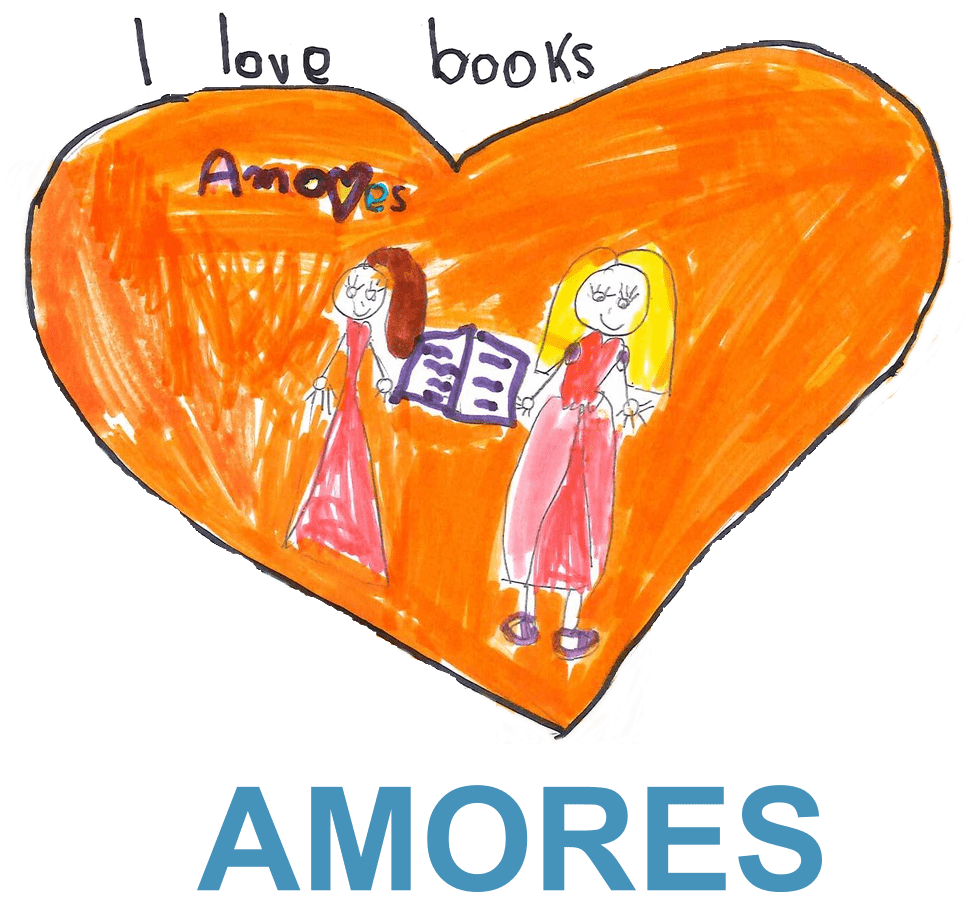An Approach to MOtivating learners to Read in European Schools - AMORES
 Anna, a 11 year old primary school student from Poland, used to read rarely in her own time and would be embarrassed if their friends saw her reading. Imagine, this year Anna’s Polish teacher and her class participate in AMORES project. Now Anna reads a lot at home and participates in collaborative work with her peers on creating e-artefacts inspired by literature. Yesterday her group finished a cartoon on Jánošík, the “Polish Robin Hood”, and published it online. Tomorrow during Polish class they will discuss the cartoon with their peers from the United Kingdom via videoconference. Anna is looking forward to it.
Anna, a 11 year old primary school student from Poland, used to read rarely in her own time and would be embarrassed if their friends saw her reading. Imagine, this year Anna’s Polish teacher and her class participate in AMORES project. Now Anna reads a lot at home and participates in collaborative work with her peers on creating e-artefacts inspired by literature. Yesterday her group finished a cartoon on Jánošík, the “Polish Robin Hood”, and published it online. Tomorrow during Polish class they will discuss the cartoon with their peers from the United Kingdom via videoconference. Anna is looking forward to it.
More than a fifth of children and young people (22%) rarely or never read in their own time and nearly a fifth (17%) would be embarrassed if their friends saw them reading. Many school students lack knowledge of national and European literature. Teachers find it hard to interest children in reading literature, but agree that the use of ICT could help raise the level of students’ interest. However, in order to implement ICT in literacy teaching teachers not only need expertise in using ICT, but also innovative methodology that would exploit the use of ICT for reading and learning literature.
AMORES will change this situation and improve literature teaching and learning across Europe by increasing student’s engagement with literature through an innovative methodology based on interactivity and collaboration. The new methodology will put the student voice at the heart of this work, empowering them to express their opinions and influence their educational experiences through creating e-artefacts inspired by national literatures.
Aims and Objectives
Improve literature learning across the EU by enabling students’ to engage via a methodology based on creativity and collaboration
Student centred approaches put the student voice at the heart of this work, empowering them to express their opinions and influence their educational experiences (Toshalis & Nakkula, 2012) so that they have a stake in their creative outputs e.g., e-artifacts (digital stories inspired by national literatures). Learners to submit reflections via video (WP3-4) and posters (WP3-5). The team has a track record in learner experience, e.g. Childs & Espinoza-Ramos (2008).
Improve students’ and teachers’ digital literacy by creating e-artefacts, promote critical reflection on their production and use in social participation
Students as authors are recognized who, identify for themselves, topics and purposes for writing that they feel are worthy of their time and effort, maximizing their engagement and motivation to learn – crucial for designing pedagogical methodologies and their evaluation, to capture learner voices which arise from the realization that learner perspectives are missing from educational research. Creanor et al observe “Many are written from a practitioner’s perspective, with only a small minority allowing the learner’s voice to come through” (2006; 3).
Empower teachers by using new technologies to increase their pedagogical competencies – ensuring an effective approach
This participative approach will lead to teacher empowerment where collaborative problem-solving is applied in new technological situations, enabling them to work together where all voices are heard and consensus between them achieved.
Sustainability – introduce a cross-EU component – learners share with peers from other countries to enrich the approach by introducing a cross-cultural virtual mobility element promoting a sense of EU identity
- use the methodology to develop a community of teachers
- create an annual competition for users of the methodology (schools, teachers, learners) to promote take-up in EU schools
- provide spaces for learner perspectives to emerge
Partners
- P1 – Croatian Academic and Research Network – CARNET, Zagreb, Croatia
- P2 – Silkeborg Naturfagscenter, Silkeborg Municipality, Silkeborg, Denmark
- P3 – Coventry University, Coventry, United Kingdom
- P4 – Staffordshire University, Stoke on Trent, United Kingdom
- P5 – 36.6 Centrum Kompetencji, Lodz, Poland
- P6 – Osnovna škola Horvati, Zagreb, Croatia
- P7 – Karlbergsskolan, Köping, Sweden
- P8 – NSF CYBERALL ACCESS, Athens, Greece
- P9 – Northumbria University, Athens, United Kingdom
- St. Mary’s Catholic Primary School, Stoke-on-Trent, United Kingdom
- Karlbergsskolan, Köping, Sweden
- Primary School Horvati, Zagreb, Croatia
- Skægkærskolen, Silkeborg, Denmark
- Primary School ABIS “School4Child”, Lodz, Poland


